The views expressed in our content reflect individual perspectives and do not represent the authoritative views of the Baha'i Faith.
When I first set out to write this series, the question I sought to answer was “What could a global economy grounded in Baha’i principles look like?”
As I have interviewed the individuals for each article, a vision has started to piece itself together based on individual and collective action. Unlike in past movements that have tried to articulate a single, one-size-fits-all economic theory, Baha’is understand there is no singular theory that will provide the key to a more just economy, beyond the basic Baha’i principles of justice, equality, and a spiritual solution to the world’s economic problems.
Instead, Baha’is around the world attempt to advance efforts for spiritual transformation and community-building, and act on spiritual principles of generosity, collaboration, and mutual assistance in our economic lives, changing the way we think and relate to one another and translating this into actionable reality.
Baha’is are charged with this endeavor to “… consider the application of the [Baha’i] teachings to their lives and, using the opportunities their circumstances offer them, make their own individual and collective contributions to economic justice and social progress wherever they reside,” and this, the guiding body of the Baha’i Faith, the Universal House of Justice says, will “add to a growing storehouse of knowledge in this regard.” In other words, actions aligned with spiritual principles can begin to create an alternative vision for the future that will serve our entire human family.
Along those lines, the Prairie Food System Vision Network (PFSVN), which endeavors to follow this model, is a coalition of individuals and organizations recently awarded the prestigious Rockefeller Foundation’s Food System Vision 2050 Prize.

While not a Baha’i endeavor, Paul Hanley, a Baha’i and until recently a lifelong resident of Saskatchewan, Canada, played a role in bringing together diverse peoples from across the region with a vested interest in accomplishing two simultaneous efforts: transforming food systems and settler-Indigenous relationships to break with an outdated colonial system.
By rethinking cultural norms and looking at existing efforts to create alternatives, PSFVN is developing a future vision for how the food system and its accompanying economic model may look in their region.
Paul Hanley, who works as a writer and a journalist professionally, has covered the environment in Canada for many years. Those efforts led him to becoming a founding member of PFSVN in Saskatchewan.
Q: Paul, can you please tell me about your path and how this ultimately led to the development of the Prairie Food System Vision Network?
A: I was born in Saskatchewan, the prairie region of Canada. I’m not from an agricultural background, but I’m a writer with a strong interest in environmental issues and agricultural concerns. In my late teens and twenties, I became quite involved in the organic farming movement in Saskatchewan and worked with a group called Earthcare to write a book on the subject … So through that I got exposure to the movement for sustainable farming, agriculture, and many other issues such as land conservation in our region.
Then three years ago at a conference, I met up with another Baha’i, Roy Steiner, who works for the Rockefeller Foundation and he told me about the Food System Vision Prize that the Rockefeller Foundation was starting. Knowing a bit of my background, he said I might want to enter the competition for this prize – so I thought that this would be a good opportunity to collect the thoughts of many people in our region about where we would like to see agriculture going. I wrote an initial reflection which brought together a bunch of ideas I was aware of as a writer, and I started to share them with people who were activists engaged in the food and agriculture movement in the prairies. We crafted this vision together and submitted it, and lo and behold we were selected as one of ten recipients of the Prize from around the world.
This was an informal network so we had to start to coalesce as a group, and now we’re incorporated as a nonprofit and we’re in the process of bringing our vision into reality. The way we want to do that is to create what we are calling a solution hub, so this would be a way of bringing together many people in our region from the grassroots level, including farmers, community members, and people with various areas of expertise in agriculture and food systems, to start reading our reality as a community, see what are some of the things we can try here to shift the system, see how they work and make adjustments as we go along.

Q: What have you learned from working to develop a unified vision with so many diverse groups?
A: As we articulated our vision, we realized that the approach had to be transformative – because our agricultural system had been built on a colonial model that had been imposed onto our landscape and onto Indigenous people from the outside.
So to build a system that is just and sustainable for the future, we had to go back and look at this legacy of colonialism, what the values were behind that system, and how do we change the culture that has been created here. It became much broader than what kind of farming methods are we going to use, or how are we going to distribute food, but instead focused on what is the legacy of the culture that generated this whole system and way of life that continues to marginalize the Indigenous population? So that became very central to what we were doing – this question of Indigenous peoples and settler populations, and how do we learn to live together in a different way that works for everybody?
Ultimately, we became aware of this concept: kwayēskastasowin wâhkôhtowin. Wâhkôhtowin is a Cree word that means the interrelatedness of all things, and kwayēskastasowin means setting things right – essentially it’s a legal term. So how do we set things right by recognizing the interconnectedness of all things, all peoples and the whole landscape? And how do we learn to become relatives? We don’t know yet, and that is where the consultative process comes in. This is facilitated by building this solution hub where we generate discourse that will contribute to changing perceptions, develop potential solutions, and try them out.


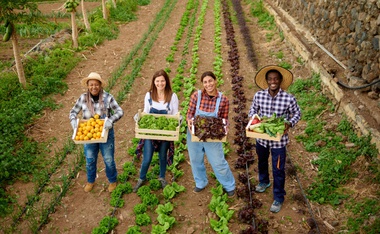




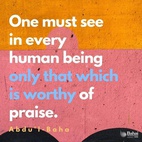


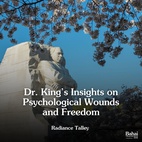
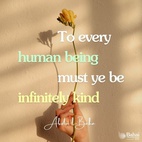
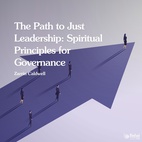
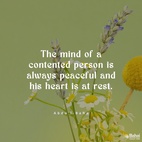
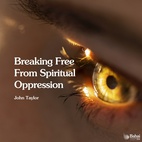

Comments
Sign in or create an account
Continue with Googleor